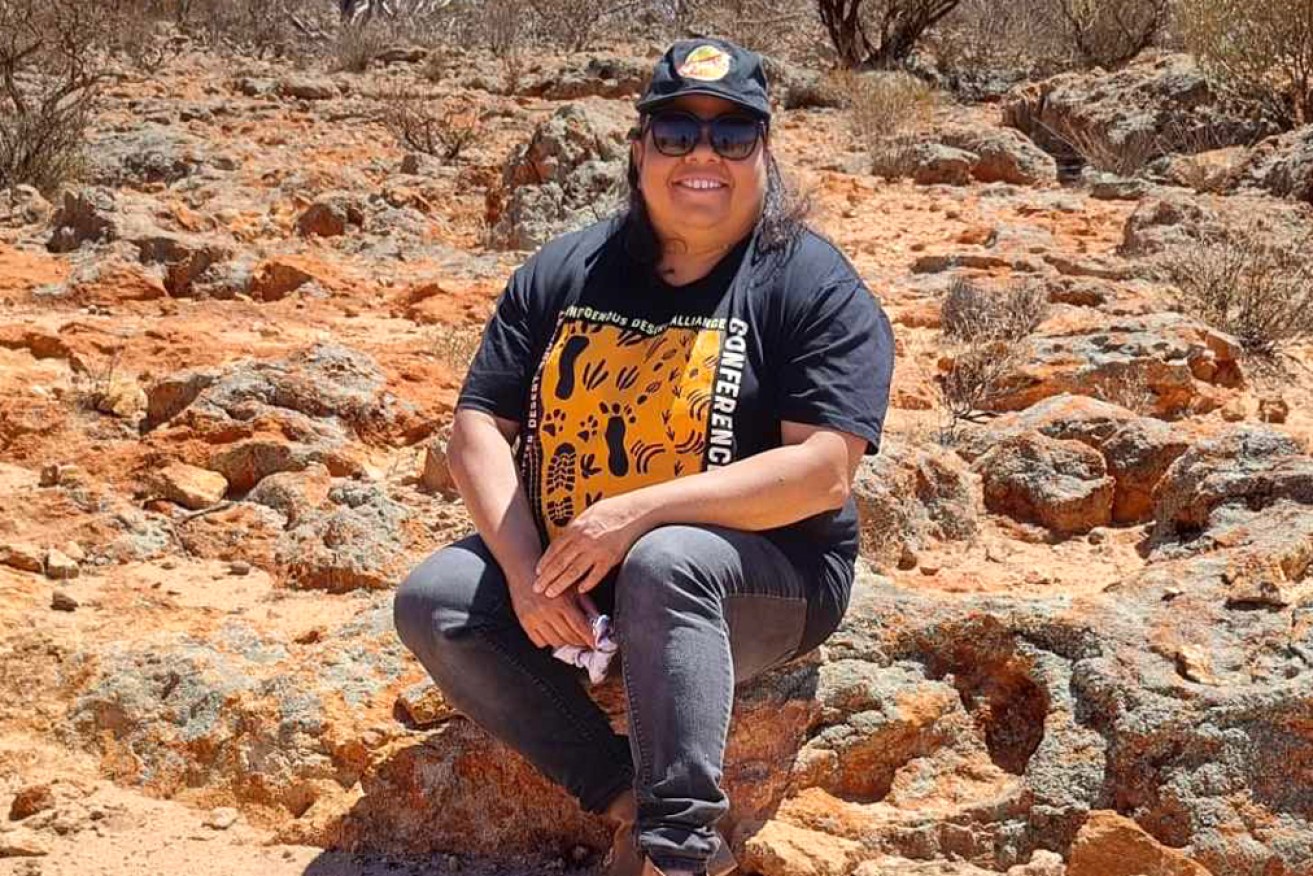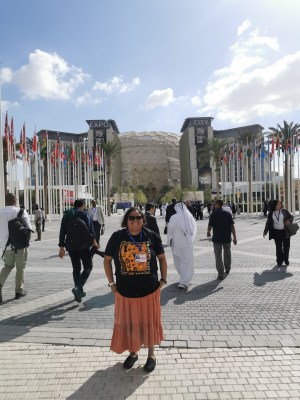Extract from ABC News
Opinion

Samantha Murray on Country, where she says never-before-seen changes are causing alarm. Photo: Supplied
Our desert home is changing fast, and we need support from Australians to stop it.
Few Australians know the Country that I call home. My Country is a place of spinifex, mulga trees, red sand and open skies.
It’s a place that my family has lived for more generations than we can remember, and the knowledge and responsibility we carry has been handed down, one generation to the next, since time immemorial.
The current generation that still lives on Country is seeing changes that we have no memory of.
The dynamics that dictate the ebb and flow of life in the desert Country, the timing and type of rain, the hot and cold times, they are changing.
The Great Victoria Desert near Cosmo Newbery, in Western Australia where I grew up, is a place where we could gather emu eggs at the right time, and find Marlu (red kangaroos) to feed the mob in the community with regularity.
Now, we see less rain in winter, so there are less of the favoured plants for emus to grow fat and lay eggs, while the hot, dry summers are putting pressure on the Marlu.
My mob from all over the desert have been finding them dead under trees in the hottest times, making us worried that they will disappear from Country, like so many of the small animals that the older people remember, but now we only know from stories.
Yarning is a huge part of my culture. It is what keeps me grounded and connected to my mob. When I yarn to my family, they talk about the love of community, the work they are doing on Country and the effort it takes to stay in place, where they feel a sense of belonging.
When I talk to the bigger desert family, their stories echo a love of their own country and a grounding sense of place the desert provides.
It is our home, the place where our old people lived, where we live and where our children and grandchildren will live.

Samantha Murray in Dubai for COP28. Photo: Supplied
The yarn that doesn’t get passed on to the rest of Australia is that our Country is like a canary in a coal mine, that no one has been listening for.
The increasing extreme heatwaves, the extended dry periods, and the record-breaking flooding rains that we have experienced make our Country hard to read and life more difficult.
The mob in the Fitzroy Valley, in Western Australia, are still recovering from the floods of last year as the wet season approaches.
Who can predict now what difficulty each summer will bring?
I worry for all of our people in the desert and what the future will look like, living in the communities with the climate and environment changing so quickly.
All Australians need to pull together at this critical time to do all that we can to slow the growing impacts of a changed climate.
Reducing our footprint while acknowledging that we have a societal responsibility to those living in extreme environments is critical.
I’m taking this message to the UN climate talks, COP28, in Dubai and calling on all countries to reduce the carbon emissions that are causing climate change.
Indigenous Australians, desert mob included, did not cause climate change, and haven’t benefited like others in society from the modern way of living.
We face an environment that might not support us like it has for generations.
Ensuring we have smart, climate-adapted remote communities will mean the world for those who live on Country, and their ongoing sustainability should be seen as essential to the social fabric of remote and regional Australia.
Samantha Murray is a proud Yilka/Wongutha/Nyoongar woman and the deputy chief executive of the Indigenous Desert Alliance. She is attending COP28 in Dubai, United Arab Emirates
No comments:
Post a Comment